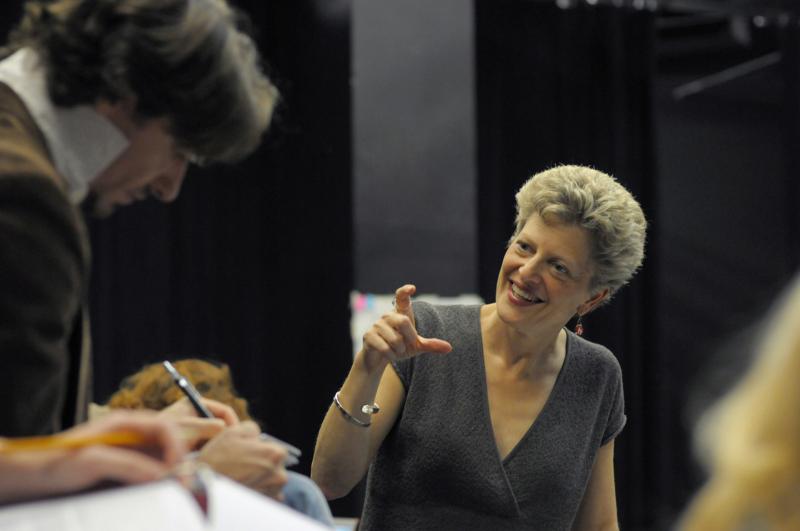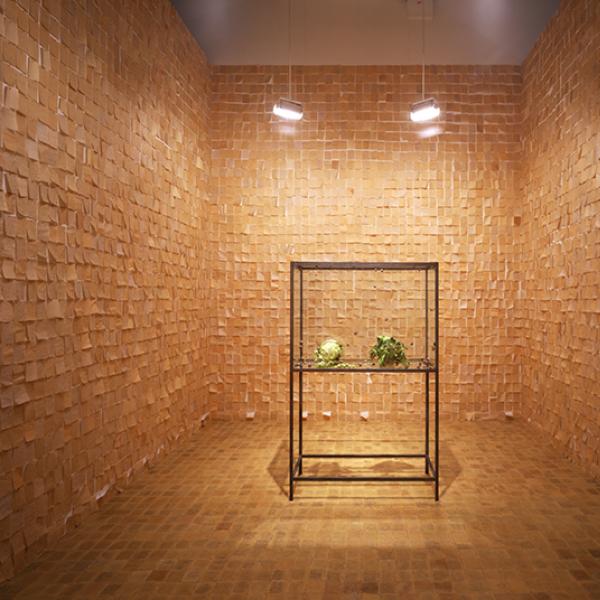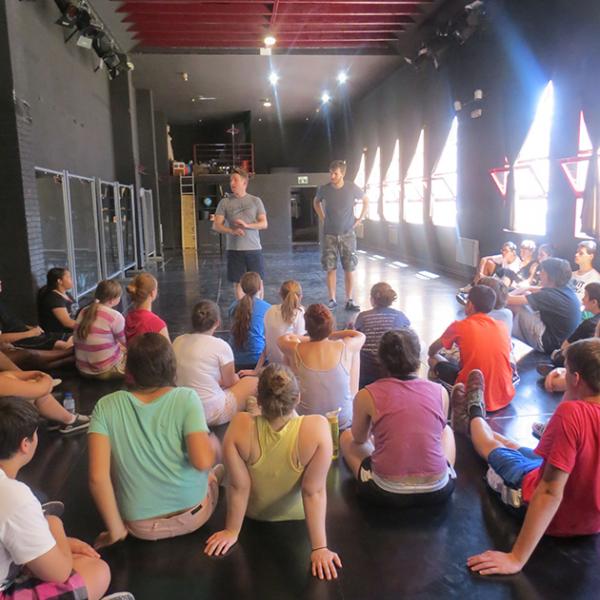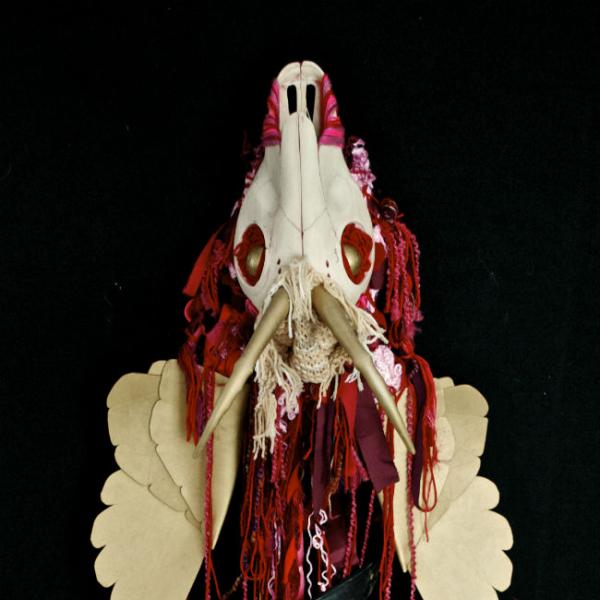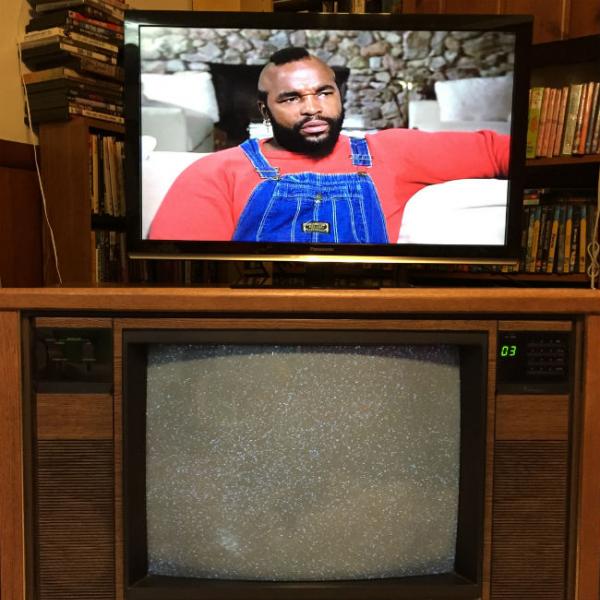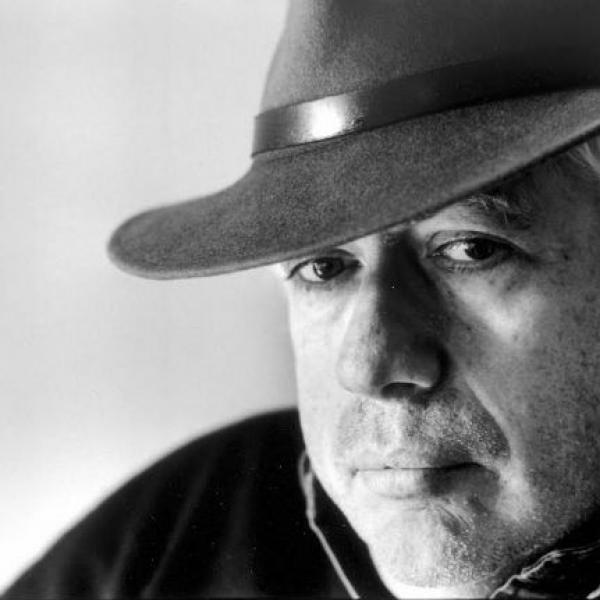Carey Perloff: What I find in the theater is that classical theater in its broadest sense is under threat for a number of reasons. It is considered elitist or narrow or white or male, which is sometimes true but I would argue not as true as people think. It would be a fantastic thing in this country to re-embrace classical theater in all its plurality and diversity
Jo Reed: That is Carey Perloff the long-time artistic director of the director of San Francisco’s the American Conservatory Theater or (ACT) and this is to NEA Arts online. I’m Josephine Reed.
If you have any doubts that classical theater is a vital art form that nourishes us and should be supported, talk to Carey Perloff. She is passionate about classical drama and outspoken in her belief that too often in the United States it is sadly neglected to the detriment of the theater, the audience, and our culture as a whole.
Carey Perloff: I think that it’s critical as artists that we remember upon whose shoulders we stand. We’re a country that’s very myopic about the past. We’re obsessed with the future, that’s what it is to be American, and yet particularly in our democracy at this moment I find it unbelievably helpful to have a relationship to thoughts and ideas of our own history
Jo Reed: Carey points out that classical drama has special characteristics that separate it from the theater that followed it.
Carey Perloff: Classical theater has tended to be theater about society, right. It wasn’t until the mid nineteenth century that drama went indoors, sat itself on a couch and became about conversation. Before that, whether you’re talking about ancient Indian drama, Chinese drama, Shakespeare or the Greeks you’re talking about plays about society, about kings and queens and clashes in culture and class and war and justice and all of those things that big drama takes on so they tend to be larger and formally different, not necessarily naturalistic.
Jo Reed: Carey’s love of classical drama is, in fact, at the heart of her passion for the theater itself.
I started my career as an archeologist so I wanted to excavate Troy and I got into drama through Greek tragedy so to me Greek tragedy is the touchstone. There is almost not an issue we are wrestling with today whether it’s about police brutality, about war, about justice, about the silencing of female voices, about slavery, about democracy, about imperialism that is not wrestled with in ancient Greek drama in the most immediate way. So the continued access to those plays seems incredibly important to me, and I would love to give a shout-out to Bryan Doerries and “Theater of War,” which is an incredible program, a national program, that uses plays like “Ajax” to wrestle with issues like PTSD or “The Bacchae” to talk about addiction.
(excerpt from Ajax)
Carey Perloff: The way Bryan has accessed those plays is extraordinary and I wish that it were triggering more productions of classical theater in more venues around the country, particularly of the Greeks, because I think it could be so successful.
Jo Reed: Carey also thinks that scope and versatlity of classical drama is underestimated. Far being dry recitations of verse, it can explode on the stage in unexpected ways that have resonance for a modern audience.
Carey Perloff: Classical drama has often employed music and dance and movement and direct address, so it represents a plethora of theatrical styles and ways of engaging an audience which are really thrilling. And I think when we stop engaging with that material and only look at drama as post-nineteenth-century naturalism we lose a sense that drama can be about the society at large, that it can tackle huge issues in a very theatrical way. We lose the notion that we seem to be so interested in right now in American theater, which is about participation, right, because for example if you think about ancient Greek drama the audience was sitting in daylight as the jury to make a kind of judgment about whether Clytemnestra or Agamemnon was right about the murder of Iphigenia or whatever justice issue was being raised. So often Brecht or Lorca or Chinese drama-- ancient Chinese drama like “The Orphan of Zhao” which ACT produced last year is very participatory.
Jo Reed: The broad scope and varying theatrical styles of classical drama makes it both vivid and difficult to produce.
Carey Perloff: The material is expensive to produce. As I say, it’s often large in scale, which means it requires large casts, it requires sometimes a longer rehearsal period, it requires costumes and music and choreography often and vocal coaches and speech coaches and dialect work and dramaturgy, all those kinds of supports that let you into a large and unfamiliar world, and classical theater of course also requires highly trained artists. So you have to have directors who have muscle to stage large work and you have to have actors who have the physical and kinesthetic and emotional capability to sustain a large-scale Greek work or Spanish Golden Age drama or whatever or Shakespeare over the course of two or three hours.
Jo Reed: One perfectly understandable result is that conservatories give classical skills much less weight and so drama students find it more difficult to get proper training for these roles.
Carey Perloff: As I go around the country and I audition and I look both at the young actors out of undergraduate programs who are auditioning for ACT’s MFA or at actors who-- young actors auditioning around the country there is clearly less and less facility with language partly because we’re not a linguistic culture anymore, we’re a visual and oral culture and a screen culture, but partly because it’s harder and harder to find training programs that are rigorously training young actors in America to do classical theater and that’s in part because one has to wonder-- and I lose a lot of sleep about this-- if they’re trained where are they going to be employed. If you look at the big theaters in New York, the few that do classical theater mostly hire stars or British actors so for many young American actors, it’s very hard to find paying work in classical theater.
(Excerpt from Dr.Faustus)
Jo Reed: Another stumbling block in the production of the classics in the US is the issue of translation…and the subsequent loss of the innovative possibilities that open up when a current playwright translates an ancient text.
Carey Perloff: We are a country that is reticent about learning foreign languages. We seem to believe that everyone in the world speaks English and so alas, that amazing cottage industry which the British are so adept at which involves commissioning contemporary playwrights to adapt and translate classical plays is less practiced in this country because many of our writers don’t have access to the original language but when they do the results are thrilling and I wish that funders in this country were excited about that process, wanted to commission and develop new translations and adaptations of classics, and I wish that funders looked at the production of classical plays as a way of doing new work ‘cause after all every time you re-approach a great play it’s for the first time.
Jo Reed: So does it come down to funding? : Not completely, but Carey Perloff is persuasive and detailed about the major influence funders can have on the production values of plays.
Carey Perloff: The field follows the initiatives that major foundations are investing in so for example So, I do think in part it is about funding. When you don’t have that support you cut corners. You cut the play; you do a big classic with seven actors; you rehearse it in two weeks. You do the things you shouldn’t do because there’s no support. So having funding allows the work to be done well and it’s also a signal that it matters. Once all that disappeared, it was really hard to argue that classical theater mattered and here’s the other crisis. When you stop doing it audiences lose the muscle to see it so contemporary audiences are used to two- or three-character, 90-minute plays. You’re in and out and you can go home and go to bed at nine o’clock. Classical theater doesn’t work that way; it requires attention and muscle and sustained engagement. I would say the results of the-- are eminently worth it but the less you produce it the less an audience is ready to experience it. So I think it’s sort of a vicious cycle and I think that if we don’t want this literature to be extinct or to only happen in very tiny arenas we have to fight for the funding.
Jo Reed: Yet Shakespeare’s plays remain relatively untouched by the American reluctance to produce classical theater.
Carey Perloff: I do find it really heartening that Shakespeare is still being produced widely in this country although we have always been less versed in Shakespeare’s sisters and brothers so for example at ACT we’ve done a lot of Jacobean drama. We did famously “Duchess of Malfi” that I did my first year at ACT that almost got me fired and then we did “’Tis a Pity She’s a Whore” and we did “Edward the Second” so Jacobean drama is extraordinary, visceral, very immediate drama but it’s a rare thing to see a Jacobean drama on an American stage, which is interesting because in some ways they’re as immediate or more immediate than Shakespeare.
Jo Reed: And please do not suggest—in Carey Perloff’s hearing, that these plays are for intellectuals and the overly-educated, in other words, the elite
Carey Perloff: There is no reason to label these plays elitist; they were done for everyone. Shakespeare is populist drama done for screaming hordes of groundlings who threw things if they didn’t approve of what was on stage. Greek tragedy could seat 40,000 citizens wrestling with their own democracy in a huge space. There’s no reason to assume that they’re elitist—they were for everyone. They were dealing with much bigger, more complex issues than much of our contemporary drama. And I think to privilege new work at the expense of classical work slightly truncates the dialog that we should be having in this country about the theater.
Jo Reed: That is the artistic director of the Actors Conservatory Theater, Carey Perloff. You read more about her thoughts on theater in her memoir Beautiful Chaos, A Life in the Theater. Thanks to Theater of War for the excerpt of Ajax and Actors Ensemble of Berkeley for the excerpt of Dr. Faustus. For NEA Arts online, I’m Josephine Reed.
